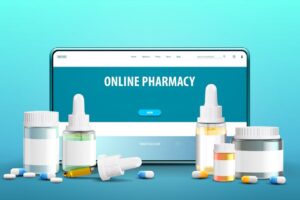The healthcare industry is constantly evolving, and with the rapid rise of digital technology, digital marketing has become essential for healthcare providers to stay competitive. From patient engagement to building trust through online platforms, the power of digital marketing for healthcare in 2024 is undeniable. In this article, we’ll dive into the key strategies that healthcare marketers should focus on to grow their practice, attract new patients, and strengthen their online presence.
Let’s explore the essentials of digital marketing for healthcare in 2024 that will help healthcare providers optimize their digital efforts.
1. The Shift Toward a Patient-Centric Approach
Focus keyword: Digital marketing for healthcare
At the heart of any healthcare service is the patient. Today’s patients expect personalized care and communication that reflects their individual needs. A patient-centric approach in digital marketing involves putting patients first, ensuring they are heard, understood, and engaged at every step of their healthcare journey.
Key elements of a patient-centric approach:
- Personalized Communication: Use data from patient interactions to craft personalized emails, SMS, or social media content. Patients are more likely to respond positively to messages that feel personal.
- Patient Journey Mapping: Understand the different stages of a patient’s journey (awareness, consideration, decision) and create content tailored to each stage.
- Feedback and Surveys: Regularly request patient feedback through surveys, and use it to improve services. Demonstrating that patient opinions matter can improve retention and satisfaction.
Examples of patient-centric digital strategies:
- Customized email campaigns that address patient-specific concerns or treatments
- Patient portals that allow individuals to access medical information or book appointments online
- Educational content based on patient conditions or treatments
This personalized approach is key to fostering trust and long-term relationships with patients, making it a must-have in any healthcare marketing strategy.
2. The Power of Marketing Automation in Healthcare
Marketing automation has become a powerful tool for the healthcare industry, helping to streamline communication and improve patient outreach.
Benefits of marketing automation in healthcare:
- Automated Patient Outreach: Set up automated reminders for appointments, follow-ups, or annual check-ups. This keeps patients engaged without requiring constant manual effort.
- CRM Integration: Healthcare providers can integrate marketing automation platforms with their Customer Relationship Management (CRM) systems to track patient interactions and send targeted content.
- Lead Nurturing: Automate nurturing campaigns that educate potential patients and guide them toward making informed healthcare decisions.
Examples of marketing automation in action:
- Appointment reminders via SMS or email that reduce no-shows
- Follow-up emails with relevant healthcare tips based on the patient’s history
- Chatbots that assist in answering common queries, freeing up staff time
By integrating automation into your digital marketing efforts, you can ensure consistent and efficient communication, which improves patient engagement and retention.
3. Building Trust with Online Reputation Management (ORM)
In the healthcare industry, trust is everything. Patients often rely on online reviews, ratings, and testimonials to make decisions about which provider to choose. That’s why Online Reputation Management (ORM) is critical.
How to manage your online reputation:
- Encourage Positive Reviews: Ask satisfied patients to leave reviews on platforms like Google, Yelp, or Healthgrades. Positive reviews can significantly influence potential patients.
- Respond to Negative Feedback: Address any negative reviews professionally and with empathy. Offering solutions and demonstrating care can help rebuild trust.
- Monitor Online Mentions: Use ORM tools to keep track of what’s being said about your practice across review sites and social media.
Tools for managing online reputation:
- Google Alerts: Stay updated whenever your healthcare practice is mentioned online.
- ReviewTrackers: A platform that consolidates all patient reviews and feedback.
- Reputation.com: Manage reviews and feedback across various platforms from a single dashboard.
Having a proactive approach to online reputation management ensures that your healthcare practice remains trusted and credible in the eyes of both existing and prospective patients.
4. Enhancing Growth Through Patient Referrals
Word-of-mouth referrals remain one of the most effective ways to grow a healthcare practice. In the digital age, referral marketing can be amplified through online tools and platforms.
Key strategies to increase patient referrals:
- Referral Programs: Implement a formal referral program where existing patients can refer friends or family members in exchange for rewards or discounts.
- Online Reviews as Referrals: Encourage patients to leave online reviews, as these function as modern-day referrals.
- Social Media Referrals: Use social media campaigns that incentivize patients to share their positive experiences online.
Benefits of a strong referral program:
- Lower Acquisition Costs: Referred patients typically cost less to acquire since the trust barrier has already been crossed.
- Higher Retention Rates: Referred patients are more likely to remain loyal, as they were introduced through trusted sources.
- Increased Patient Satisfaction: Satisfied patients who refer others tend to remain more engaged with your practice.
A well-designed referral strategy, supported by digital platforms, can significantly boost patient acquisition and retention.
5. Captivating Content Creation for Patient Education
In the digital marketing world, content is king, and this holds especially true in healthcare. Patients seek reliable, easy-to-understand information about their health concerns and treatments.
Types of content to create for healthcare marketing:
- Blogs: Write informative articles addressing common medical conditions, treatments, and healthcare tips.
- Video Content: Create short videos explaining procedures, patient testimonials, or expert interviews.
- Infographics: Use visual content to break down complex medical information into digestible formats.
Content creation best practices:
- Focus on Education: Provide valuable and educational content rather than promotional materials. Patients are more likely to engage with content that addresses their health concerns.
- Use SEO Strategies: Optimize content with keywords like digital marketing for healthcare to ensure it ranks in search engines.
- Interactive Tools: Create online tools like symptom checkers, appointment schedulers, or healthcare quizzes to engage patients.
Engaging content can help establish your healthcare practice as an authority in the industry, driving both patient education and loyalty.
6. The Role of Paid Ads in Healthcare Marketing
While organic efforts are critical, paid advertising plays a significant role in expanding your reach. Paid ads allow healthcare practices to target specific patient demographics quickly.
Popular platforms for paid healthcare ads:
- Google Ads: Target keywords like healthcare services or specialist near me to appear at the top of search results.
- Facebook Ads: Use demographic targeting to reach potential patients based on age, location, and interests.
- Display Ads: Leverage display networks to show ads on healthcare-related websites.
Benefits of paid ads in healthcare:
- Immediate Visibility: Paid ads can get your practice in front of potential patients quickly, helping to drive traffic and conversions.
- Targeted Campaigns: With advanced targeting options, you can ensure your ads are only shown to the most relevant audience.
- Measurable Results: Track key performance metrics such as clicks, conversions, and return on ad spend (ROAS) to optimize campaigns.
Investing in paid ads, when combined with organic strategies, can greatly enhance your practice’s visibility and patient acquisition.
7. Leveraging Google Analytics for Healthcare Marketing
To improve your digital marketing efforts, it’s essential to measure what’s working and what’s not. Google Analytics offers invaluable insights into patient behavior and campaign performance.
Key metrics to track with Google Analytics:
- Website Traffic: Monitor the number of visitors to your website and identify traffic sources (organic, paid, social).
- Conversion Rates: Track how many visitors are converting (e.g., scheduling appointments, contacting you).
- Bounce Rate: Measure the percentage of visitors who leave your site without interacting. A high bounce rate may indicate that your content or website design needs improvement.
How to use data for optimization:
- Identify Top-Performing Content: Use analytics to determine which blog posts or pages attract the most visitors and replicate that success.
- A/B Testing: Test different landing page designs, call-to-actions (CTAs), and content formats to find what resonates best with your audience.
- Audience Insights: Learn more about your visitors’ demographics, interests, and behaviors to tailor your marketing efforts accordingly.
Leveraging data-driven insights allows you to continuously improve your digital marketing strategies and increase patient engagement.
8. The Importance of Social Media Marketing for Healthcare
In today’s digital world, social media is a powerful tool for connecting with patients and building a community around your healthcare practice.
Best practices for healthcare social media marketing:
- Choose the Right Platforms: Focus on platforms where your audience is most active. Facebook, Instagram, and LinkedIn are often popular for healthcare content.
- Share Educational Content: Post blogs, videos, and infographics that educate your followers about healthcare topics.
- Engage with Patients: Respond to comments, answer questions, and interact with followers to build a sense of community.
Examples of engaging social media content:
- Health Tips: Share daily or weekly health tips to keep followers engaged.
- Patient Testimonials: Feature real patient stories (with consent) to build trust and credibility.
- Live Q&A Sessions: Host live sessions where healthcare professionals answer questions from the audience.
By maintaining an active presence on social media, healthcare providers can stay connected with patients and keep their practice top of mind.
9. The Need for Comprehensive Market Research in Healthcare
Successful digital marketing strategies are grounded in a thorough understanding of your target audience. This is where market research comes into play.
How to conduct effective healthcare market research:
- Patient Surveys: Collect feedback from patients about their experiences, preferences, and expectations.
- Competitor Analysis: Research what other healthcare providers in your area are doing online, and identify gaps or opportunities.
- Keyword Research: Use tools like Google Keyword Planner to find relevant keywords (like digital marketing for healthcare) and ensure your content ranks in search engines.
By conducting regular market research, you can better understand your audience’s needs and stay ahead of the competition.
10. Conclusion: The Future of Digital Marketing for Healthcare
In 2024, digital marketing for healthcare is no longer optional—it’s a necessity. With the rise of patient-centric care, marketing automation, and data-driven insights, healthcare providers have more opportunities than ever to connect with patients, build trust, and grow their practice.
To recap:
- Focus on a patient-centric approach to build strong relationships.
- Leverage marketing automation for efficient patient outreach.
- Use content creation to educate patients and establish authority.
- Invest in paid ads and social media to expand your reach.
- Continuously optimize using Google Analytics and market research.
By implementing these strategies, your healthcare practice can thrive in the digital age, ensuring you attract and retain patients while maintaining a competitive edge.
FAQ's
How is digital marketing used in healthcare?
Digital marketing is used in healthcare to enhance patient engagement, improve online visibility, and attract new patients. Healthcare providers use strategies like search engine optimization (SEO), social media marketing, email campaigns, and content creation to educate patients, promote services, and build trust. Additionally, tools like Google Analytics and marketing automation help streamline operations and track campaign performance.
What is digital transformation in the healthcare industry?
Digital transformation in healthcare refers to the integration of technology into every aspect of healthcare operations, from patient care to administrative processes. This includes telemedicine, electronic health records (EHRs), online patient portals, mobile apps, and digital marketing strategies. Digital transformation aims to improve patient experience, enhance healthcare efficiency, and provide more personalized care.
Why is online reputation management important for healthcare providers?
Online reputation management is critical for healthcare providers as patients often rely on online reviews and ratings when choosing a healthcare professional. Managing your online presence ensures that potential patients see positive feedback, which builds trust and encourages them to choose your practice. Addressing negative reviews and promoting positive testimonials can significantly impact patient acquisition.
How can healthcare providers increase patient referrals through digital marketing?
Healthcare providers can increase patient referrals by creating patient-centric content that encourages sharing and engagement. Referral programs, online review campaigns, and social media engagement can also drive more referrals. Providing excellent patient experiences, combined with easy-to-share referral links or incentives, makes it more likely that satisfied patients will recommend your services to others.
What role does Google Analytics play in healthcare digital marketing?
Google Analytics plays a vital role in healthcare digital marketing by offering valuable insights into website traffic, patient behavior, and the effectiveness of online campaigns. It helps healthcare providers understand which digital marketing strategies are working, how patients find their website, and where they may need improvements. This data-driven approach allows for continual optimization and better-targeted marketing efforts.
Conclusion
In 2024, digital marketing for healthcare is no longer optional—it’s a necessity. With the rise of patient-centric care, marketing automation, and data-driven insights, healthcare providers have more opportunities than ever to connect with patients, build trust, and grow their practice.
To recap:
- Focus on a patient-centric approach to build strong relationships.
- Leverage marketing automation for efficient patient outreach.
- Use content creation to educate patients and establish authority.
- Invest in paid ads and social media to expand your reach.
- Continuously optimize using Google Analytics and market research.
By implementing these strategies, your healthcare practice can thrive in the digital age, ensuring you attract and retain patients while maintaining a competitive edge.
PQube provides expert digital marketing services for healthcare providers, helping you grow your online presence, reach new patients, and build long-lasting trust in your community.







